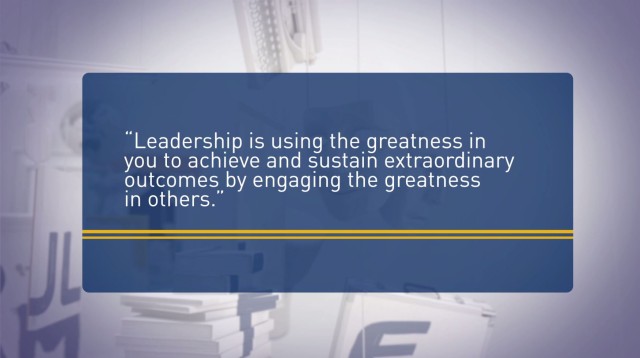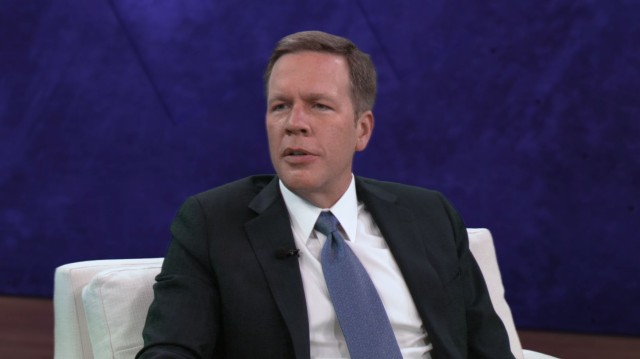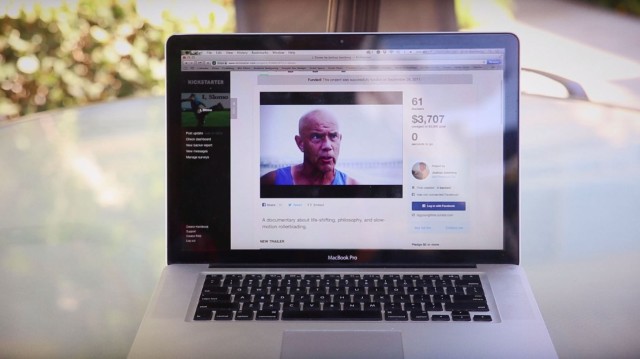Leadership. Many of us aspire to it, but very few people do it well. What makes an effective leader? How do we motivate others to fulfill their potential? And can the leadership gender gap be overcome? These are the questions we’re asking our guests this week.
Grab a pen and take notes – this episode of Full Frame is bringing you lessons in leadership – from the people who are defining what it means to be an effective leader in all aspects of life.
Tune into Full Frame on CCTV America at 7:00 PM EDT on Saturday, June 13, 2015.
James Altucher: Choose Yourself

James Altucher
James Altucher knows a thing or two about comebacks. After making his fortune by starting and selling a successful business in the late 1990’s, he lost everything just a few years later in cyber-tech investments.
Now he is back on top and is currently the Managing Director of Formula Capitol. He is teaching others how to take control of their lives and make their own success.
His blog, weekly podcasts and book, Choose Yourself, help leaders in many different industries deal with anxieties and daily challenges.
According to Altucher, removing negative people and influences in one’s life is difficult, but essential to achieving true happiness and managing one’s stress.

In his interview with Mike Walter, Altucher shares his successes and failures in the world of business and how to alleviate unnecessary problems and relationships.
Follow James Altucher on Twitter: @jaltucher
Susan Colantuono: Leading Women

Colantuono
Despite comprising 50 percent of the world’s population, there is still a lack of women in leadership positions in the corporate world. In fact, only three out of 108 countries have achieved gender equality in their management ranks – according to studies by the International Labor Organization in 2013. Susan Colantuono, author, leadership expert and Founder/ CEO of Leading Women wants to change that.
Leading Women is a consulting firm working with businesses worldwide by supporting corporate initiatives to close the gender gap in leadership positions.
Colantuono defines leadership as, “using the greatness in you to achieve and sustain extraordinary outcomes by engaging the greatness in others,” which she calls the foundation of her company’s work.
Her research has found that when managers rate the performance of men and women, they consistently expect the men to outperform women on achieving financial outcomes.

Susan Colantuono discusses the need for closing the gender leadership gap on this week’s Full Frame.
Follow Susan Colantuono and Leading Women on twitter: @leadingwomen
2095: The year of gender workplace equality

The World’s Economic Forum’s 2014 Global Gender Gap report concluded that 2095 will be when gender equality will finally be achieved in work places. Eighty years is too long for some future female leaders who are taking matters into their own hands.
 Kimberly Yang is a senior partner at the tech recruitment firm PROVEN and has faced many hurdles due to her gender. She says that women should use the bias they face in the workplace as motivation.
Kimberly Yang is a senior partner at the tech recruitment firm PROVEN and has faced many hurdles due to her gender. She says that women should use the bias they face in the workplace as motivation.
Female CEO’s are very hard to find in large corporations. Women hold only 4.6 percent of CEO positions in the Fortune 500, while men dominate business in 19 out of 20 board rooms. The next generation of female entrepreneurs is set to achieve a “leadership equilibrium.”
L.A. fashion designer Bri Seeley incorporates blog writing into her design work, which are female centric. Finding the positive in the feminine is the theme of her new book, The Inspirational Woman Project, which has a simple premise: interview women from around the world about what it is to be feminine.
Musician Sonnet Simmons has her own page in the book. She currently sings with a group of all female musicians, which makes a statement in a male dominated field.
These three women discuss how they embrace femininity in their fields with L.A. correspondent Sandra Hughes this week on Full Frame.
Follow Bri Seeley on Twitter: @briseeley
Follow Sonnet Simmons on Twitter: @sonnet music
Tribal Culture

Dave Logan
How does world shattering innovation come about? Dave Logan, Co-Founder and senior partner at the consulting firm CultureSync, says that it comes from the tribal culture that is inherent in every community. Logan is also a professor at the University of Southern California, and author of the bestselling book Tribal Leadership.
Logan says the key to changing a company’s culture is to change the community’s local culture. It’s a process that doesn’t happen overnight because there are five stages that need to be experienced and surmounted.
According to Logan, the root cause of many companies’ dysfunction and workforce dissatisfaction is how managers are trained to lead.
Logan sits down with Mike Walter on Full Frame this week to explain what makes a great leader, the interaction of tribes, and what happens when a company grows too large.
Follow Dave Logan on Twitter: @davelogan1
Full Frame Close Up: Slomo

When documentary filmmaker Joshua Izenberg was looking for a new film subject, his father told him about John Kitchin, a neurologist who left the medical field because he wasn’t truly happy. John found happiness in a rather common activity: roller skating, which he now does all day, every day. For 15 years, Dr. Kitchin’s daily ritual has been skating up and down the boardwalk in Pacific Beach, Calif., which has earned him the nickname “Slomo.”
While he was still practicing medicine, Dr. Kitchin started losing his eyesight and began losing interest in his work life. He had achieved all of the traditional “trappings of success”, but Kitchin was far from happy. So he walked away from it all and started a simple life of skating and changes to “Slomo”. To him skating is an experience similar to worship and meditation.

When Full Frame’s cameras caught up with Slomo on the boardwalk, he told us that the documentary has made him a sub-culture celebrity – he is often stopped by tourists who want to take a picture with him. Slomo believes his story has resonated with audiences worldwide because there are a growing number of people who are dissatisfied with their lives, and are experiencing an all-encompassing feeling of “meaningless”, but don’t know how to take control of their lives to find true happiness .
Follow Joshua on Twitter: @slomo
 CGTN America
CGTN America
